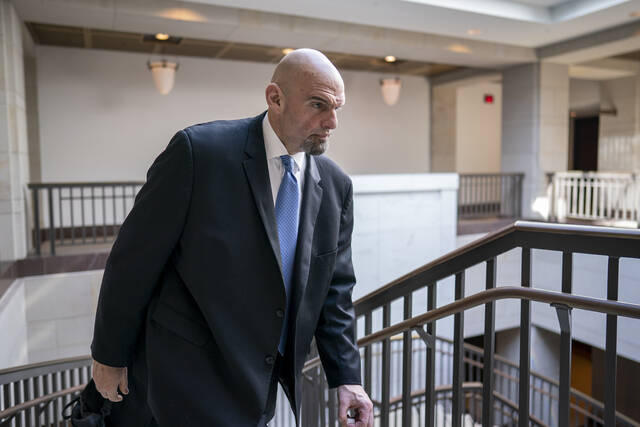“And that was the start of a downward spiral,” U.S. Sen. John Fetterman said.
The Braddock Democrat was speaking to CBS journalist Jane Pauley in a “Sunday Morning” interview. The nationally televised interview was just two days after Fetterman’s discharge from Walter Reed National Military Medical Center, where he spent six weeks being treated for clinical depression.
He is also 11 months out from a stroke suffered days before the 2022 primary. The American Stroke Association says depression is common for stroke survivors, happening in about a third of cases.
Fetterman’s condition has been a political talking point since the stroke was made public. It couldn’t be avoided, as much of his summer campaigning was done via social media as he recovered. The lead-up to the debate and then the general election were rife with speculation about whether he was up to the job.
Whether he is or not is still open to discussion. It’s been only three months, and he has spent half of that time in a hospital room.
What cannot be denied is the attention Fetterman has brought to mental health and the people who struggle with it.
About 21 million Americans suffered a major depressive episode in 2020, according to the National Institutes of Health. That’s 8.4% of the population. About two-thirds were treated — meaning 7 million people weren’t.
For some, that’s because they didn’t have access to insurance or couldn’t find a provider. For others, it might have been that they didn’t have support. For many, it could have been the stigma of mental illness. Asking for help can be hard. Admitting you need it can be just as difficult.
Untreated mental illness can unspool into impacts on education, children and youth services, the judicial system and more. Mental health even affects workplace productivity. The medical journal The Lancet estimates a drag of $1 trillion on the worldwide economy.
Fetterman didn’t really have the option to keep his inpatient treatment under wraps. A senator’s absence isn’t easily missed. When that senator is 6 feet, 8 inches tall, he stands out in a crowd.
But by getting that inpatient treatment, he put a spotlight on the need for it. By putting his depression on the same par as his stroke, he indicated what we should all acknowledge — that mental health care is just health care.
By admitting to that “downward spiral,” maybe he can lead other people to ask for the help they need, too.








